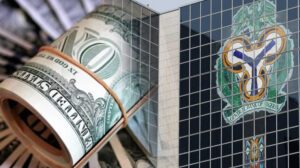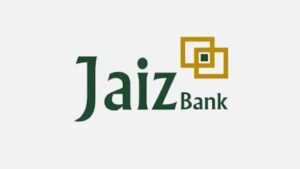

Nigeria’s rising debt service payments, a warning sign for economic stability
By Esther Agbo
Nigeria’s financial landscape is increasingly dominated by the mounting cost of servicing its foreign debt, which has become a significant strain on the nation’s resources.
In the first seven months of 2024, Nigeria allocated $2.78 billion, or 64 percent of its total foreign payments of 4.36 billion official dollar payments made between January and July 2024 by the Apex Bank on behalf of the Nigerian government to debt servicing, according to the Central Bank of Nigeria (CBN).
This represents a sharp increase from 46 percent during the same period in 2023, underscoring the growing burden of debt on the country’s finances.
The upward trend in debt service payments is alarming, reflecting not only an increase in Nigeria’s total debt obligations but also the rising cost of maintaining existing loans.
In January 2024, external debt servicing payments surged to $560.52 million, marking a 399 percent increase compared to the $112.35 million paid during the same month the previous year.
This amount represented 74 percent of the total international payments of $757.41 million made that month. Although the pattern varied over the following months, the trend remained notable.
In February 2024, debt servicing costs reached $283.22 million, making up 67 percent of the $424.96 million total international payments for that month, and showed a slight 2 percent decrease from the $288.54 million paid in February 2023.
March 2024 saw a further decline to $276.17 million, a 31 percent drop from $400.47 million in the same month of the previous year, representing 65 percent of the $424.71 million total international payments.
By April 2024, debt servicing payments decreased to $215.20 million, accounting for 47 percent of the $462.54 million total international payments, but this still marked a significant 132 percent increase from the $92.85 million paid in April 2023.
The most significant increase occurred in May 2024, when debt servicing payments soared to $854.37 million, a 287 percent rise from the $221.05 million recorded in May of the previous year, indicating a substantial increase in debt stock, signalling that Nigeria is potentially headed for deeper financial challenges if this trend continues unchecked.
This trend is not merely about numbers but indicates a broader issue of economic management. The sharp rise in debt service costs, despite fluctuating payments in some months, points to the increasing difficulty Nigeria faces in balancing its budget.
In June 2024, there was a brief respite, with debt servicing dropping to its lowest percentage of the year at 14 percent of total foreign payments.
This was also the highest monthly expenditure during the period, accounting for 69% of the $1.24 billion in total international payments made that month.
In June 2024, debt servicing costs amounted to $50.82 million, a slight 6 percent decrease from the $54.36 million recorded in June 2023.
This figure made up just 14 percent of the $353.61 million in total international payments for the month, marking the lowest percentage of the year and indicating a temporary easing of debt obligations at the end of the first half of the year.
However, this relief was short-lived, as July 2024 saw debt servicing increase to $542.50 million, which constituted a significant 78 percent of the $694.45 million in total international payments. Nevertheless, this represented a 15 percent decline from the $641.70 million paid in July 2023.
The underlying factors contributing to this situation include a possible increase in the country’s debt stock, higher interest rates, and changes in repayment schedules. Each of these elements exacerbates the pressure on Nigeria’s finances, forcing the government to allocate more of its limited resources to meeting debt obligations instead of investing in critical areas like infrastructure, healthcare, and education.
This growing debt burden is not only a national concern but part of a broader global trend. The World Bank has raised alarms about the rising debt service costs faced by developing countries, warning of the risk of economic distress if corrective measures are not taken.




